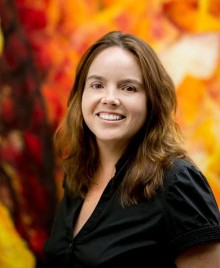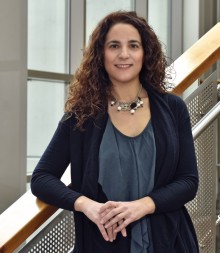Two professors win Whiting fellowships
Wheaton College professors M. Gabriela Torres and Montserrat Pérez-Toribio have received fellowships from the Marion and Jasper Whiting Foundation to fund travel and research that will facilitate the creation of new courses, transform existing classes and extend the faculty members’ scholarship.
The foundation awards fellowships that enable professors to study abroad or away from their home institutions. The aim is to stimulate and broaden the minds of teachers to improve and enhance the quality of their instruction. This year, 35 recipients were selected for fellowships out of 76 applicants.

Torres, associate professor of anthropology, will travel to Copenhagen, Denmark, to conduct work that will help her further develop and update two key courses that she teaches, “Medical Anthropology” and “Violence against Women.” Pérez-Toribio, associate professor of Hispanic studies, will spend time in Belgium and Ireland to expand her knowledge on literary texts that deal with the experiences of religious and political refugees in the Spanish Empire during the 17th century.
A social anthropologist who specializes in the links between gender-based violence and state institutions, Torres seeks to infuse her two interdisciplinary courses with a global context from what she learns in Denmark.
A 2012 survey conducted by the European Union Agency for Fundamental Rights indicates that women in Denmark reported some of the highest incidence of violence in the region, according to Torres. For example, 52 percent of Danish women reported sexual or physical violence by their intimate partners whereas the same experience was only reported by 20 percent of European women overall, she says.
In Copenhagen, the professor will interview colleagues working on violence against women research and advocacy. She also plans to explore the resources at the Dignity Danish Institute against Torture, which hosts the world’s largest collection of publications on torture.
“Denmark is a particularly interesting site to think through how we teach about violence against women, given its growing immigrant populations and the active role the state has taken in countering a markedly high incidence of violence against women,” says Torres. “My work there will enable me to bring students firsthand experience on groundbreaking work in the mitigation, documentation and study of violence.”

Pérez-Toribio, whose research interest includes late medieval, 16th and 17th century Spanish literature, will spend time in Brussels and Leuven, Belgium, and in Dublin, Ireland. She will conduct archival work, as well as visit convents, museums, monuments and other historical sites to investigate the relationship between the Spanish crown and the Irish community exiled in the Spanish Low Countries during the reign of the Archduke Albert and the Archduchess Isabella in the Habsburg Netherlands (1601–1633).
“The goal is to further enhance my teaching and scholarship in important ways leading to the creation of a new course—‘Being a Refugee in Spain: From 15th to 21st century,’ which will focus on the experience of political and religious refugees in Spain,” Pérez-Toribio says. “I plan to digitize some historical documents and incorporate them as part of the reading assignments and visual materials.”
“This course intends to offer an interdisciplinary study of the experience of different refugee communities along the centuries in Spain and its colonized territories,” says Pérez-Toribio. “Nowadays the migration of refugees across Europe and around the globe is shaping our contemporary society, in the same way that religious and political refugees shaped the early modern world and profoundly affected literature, art and culture. This class seeks to address a broad range of questions such as: What has defined different refugee crises at different times in history? How have governments and other organizations responded to refugee crises and how has the refugee experience changed over time?”